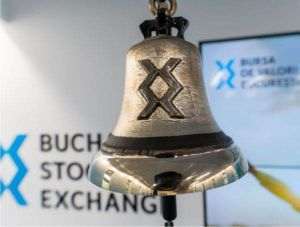• Prashant Kothaari, Alpha Alternatives: "All of Trump's policies will probably be inflationary; the dollar is likely to depreciate against gold"
• Matt Sherwood, Perpetual: "Geopolitics can trigger events with "fat tail' implications for financial markets"
• Michael Rosen, Angeles Investments: "For thirty years, markets have benefited from the strongest globalization and political stability seen; a new, riskier era has begun"
Geopolitics is at the top of the list of risks this year for fund managers, which is also reflected in investment flows, as money flows out of hotspots - such as the Taiwan stock market - and into safe-haven assets such as gold , which reached a new historical record last week, writes Reuters.
According to the mentioned source, the basic idea is that the period of peace and free trade is over, and the next period looks less profitable.
Almost half the globe is holding elections this year, and the results so far indicate a shift in mood: Taiwan elected a president loathed in Beijing, voters in France swung heavily to the far right, and Britain installed the largest left-wing majority in the last generation. In just eight days, United States politics was hit by two shocks: Republican Donald Trump was hit by a bullet and Democrat Joe Biden resigned less than four months before voting day. In this climate, geopolitical prospects are at the fore of investors, according to Reuters.
"It's certainly one of the most important things we've worked on in our process all year," said Erik Knutzen, chief investment officer for multiple asset classes at Neuberger Berman, which manages $481 billion in assets. "This is manifested, first of all, by evaluating the risk level of the portfolio as a whole. An environment with high geopolitical risk causes us to reduce the degree of risk".
According to Reuters, this is showing in prices as markets focus on two potential pitfalls that could be exacerbated by a Trump victory: inflation and restrictions or disruptions in semiconductor sales, particularly to Taiwan.
Gold, seen as a hedge against inflation and a beneficiary of demand from central banks in troubled times, hit a record high of more than $2,450 an ounce in the days after Trump's assassination, an event that inflamed the former president's supporters.
"All of Trump's policies are likely to be inflationary - whether it's tax cuts, immigration, relocating business to the United States, therefore bearish for the dollar ... therefore, it is possible that the dollar to depreciate against gold," said Prashant Kothaari, CEO of Alpha Alternatives, quoted by Reuters.
The British-Canadian publication notes that more than $100 billion was wiped off the market value of Taiwan Semiconductor Manufacturing in less than a week after Trump took a somewhat ambiguous stance on his commitment to protecting Taiwan and the industry of semiconductors.
Taiwan's currency fell to an eight-year low yesterday as investors fled the island at the forefront of semiconductor manufacturing technology but also at the forefront of tensions between the United States and China.
"The resurgence of geopolitical risk has significantly reduced enthusiasm for AI hardware trading," said Norman Villamin, chief strategist at Union Bancaire Privee, quoted by Reuters.
• Tail risk
As fund managers become more confident about the US interest rate cut in September and the victory of the Republican candidate for the White House, geopolitical concerns have a longer horizon, being linked to the global economic potential and risks looming in the background, according to the British-Canadian publication.
High interest rates are starting to bite the economy and China's growth is slowing, there are wars in the Middle East and on the fringes of Europe, where the great powers are aligned in opposing camps. "We see that tensions remain high, with political consequences likely to last throughout the decade," said David Bianco, chief investment officer at DWS.
Energy and defense stocks, as well as commodities including copper and uranium, are on DWS's investment radar, according to the asset manager's director, French shares have underperformed European shares overall, and German sovereigns are at their biggest discount in twelve years, including on fears that a divided government will be Eurosceptic.
"We are short on French and Italian bonds because we think there will be political noise in those countries as they negotiate a lower budget deficit," said David Zahn, head of European fixed income at Franklin Templeton.
Matt Sherwood, chief multi-asset investment strategist at Perpetual, a Sydney-based fund manager, says geopolitics has never been the main focus of financial markets, but other issues such as interest rates and rising corporate profits have been. for stock markets.
But geopolitics can trigger events with "fat tail" implications for financial markets, the strategist says, referring to price declines greater than those predicted by a normal probability distribution. "Therefore, an investor needs a low-cost diversification strategy that offers downside protection and upside potential," added the Perpetual manager.
Michael Rosen, chief investment officer at Angeles Investments in Santa Monica, California, pointed out that for thirty years, markets have benefited from the strongest globalization and political stability the world has seen. "But a new, riskier era has begun," said Rosen, quoted by Reuters.






























































